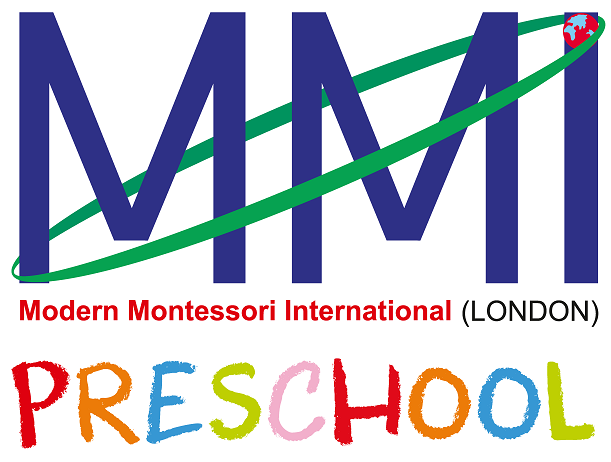The Montessori franchise model flourishes on district child development principles. Two fundamental concepts—sensitive periods and the absorbent mind—are central to early learning. They lead the way in understanding how children naturally develop and acquire information during early life. They are more than just learning vocabulary but are pillars of foundational importance that drive the Montessori methodology.
Franchise owners who thoroughly grasp and implement these concepts can build caring, productive, and reputable learning environments. Parents today crave genuine alternatives to conventional schooling, and Montessori’s practices provide exactly that. By tying your franchise into these tested child development phases, you can guarantee improved learning results and long-term brand allegiance. Within this article, we examine how the concepts of sensitive periods and the absorbent mind propel the accomplishment and expansion of any Montessori franchise.
How Montessori Franchise Owners Gain Benefit from These Principles
Montessori principles establish strong brand trust and growth. Parents see results, and word gets around.
Montessori Mind principles inform classroom design and teaching approach
- Sensitive periods assist teachers in providing individualized learning.
- Absorbent mind principles inform classroom design and teaching approach.
- These approaches produce improved learning results, boosting parent satisfaction.
- Natural Learning Stages programs are more enjoyable and less coercive.
Individualized Learning Increases Enrollment and Retention
Parents enjoy seeing improvement in their child’s abilities and confidence. Montessori settings are planned to facilitate this.
- Clear emphasis on language, order, and movement appeals to families.
- Kids perform better and attend longer, resulting in consistent revenue.
- Franchises can preserve a positive image with content students and parents.
- Happy families refer others, growing the franchise network naturally.
Keys to Growth in a Montessori Franchise
Montessori principles are applied by franchises that perform better. Here’s what they do with sensitive periods and the absorbent mind in order to grow.
1. Plan Prepared Classrooms
All areas must facilitate independence and concentration.
- Classrooms need to align with the development requirements of the children.
- Furniture and equipment must be child-friendly and within reach.
- These characteristics facilitate freedom, order, and self-construction.
- A well-prepared environment stimulates normal curiosity and peaceful behavior
2. Educate Teachers in Montessori Philosophy
Teachers need to deeply comprehend child growth.
- They should be able to recognize each child’s sensitive period.
- This helps them provide materials at the optimal time.
- Continuous training enhances class effectiveness and results.
- Assured teachers facilitate consistent, quality instruction.
3. Involve Parents with Effective Communication.
Parents must comprehend what makes Montessori unique.
- Discuss the concepts of the absorbent mind and early learning advantages.
- Report milestones associated with sensitive periods in a child
- Foster parent engagement through workshops and open houses.
- Educated parents become franchise advocates.
4. Standardize Montessori Best Practices Across Locations
Consistency creates trust and brand loyalty.
- The same Montessori principles are applied in all franchise locations.
- Utilize a checklist to ensure each classroom meets standards.
- Offer franchisees teaching tools and revised material guides.
- A consistent approach reinforces the overall Montessori franchise identity.
Realizing the Montessori Franchise Disadvantage
The Montessori franchise model emphasizes the way children acquire knowledge, rather than what they acquire. This is a distinction from other models. Two principles drive this disadvantage: sensitive periods and the absorbent mind.
Sensitive Periods Trigger Natural Learning
At specific ages, children develop focused attention to learning particular skills. These are referred to as sensitive periods.
- Children respond more positively to language, movement, or order at different ages.
- These are the times in which learning comes naturally and is enjoyable.
- Teachers play on these natural windows of development.
- Missing out on these stages can cause delays in important skills.
Absorbent Mind Creates the Foundation
From birth to age six, kids take it all in around them without having to try. This is referred to as the Absorbent Mind.
- Kids take in language, culture, and habits without being taught.
- Their minds are like sponges, soaking up experience every second.
- A prepared environment facilitates this natural growth and lays solid foundations.
- The appropriate environment has a lasting effect on the personality and behavior.
Why Sensitive Periods and the Absorbent Mind Are More Important Today
Parents in today’s busy world desire programs that enable children to naturally succeed.
Montessori Franchise Expansion is Based on Child-Focused Learning
- The Absorbent Mind guarantees that children learn happily, not coercively.
- Sensitive periods enable children to develop sound life skills early.
- Children gain confidence, concentration, and self-reliance.
- This solid foundation equals long-term academic and life success.
Children Require Supportive Environments Today More Than Ever
Montessori classrooms balance structure with freedom.
- Technology is distracting, but Montessori materials create concentration.
- Kids go deeply into concepts under the guidance of natural interest.
- Teachers honor each child’s pace, reducing pressure.
- Montessori environments safeguard and foster a child’s love of learning.
Conclusion
Sensitive Periods and the Absorbent Mind are more than teaching theories. They are the pillars of Montessori franchise success. These concepts allow for learning spaces wherein kids thrive naturally, pressure-free.
When taught according to their stages, children thrive. Parents witness tangible progress, and word-of-mouth establishes your franchise’s credibility. A solid Montessori environment teaches, not merely—transmutes.
As early learning takes center stage in the competitive education scene of today, franchise establishments with strong roots in genuine Montessori philosophy will


